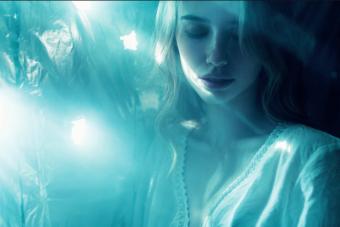
The record for no sleep is unofficially about 264 hours (11 days). The Guinness Book of World Records will not acknowledge a world record for not sleeping due to the inherent danger in forcing yourself to stay awake.
Scientific Record for No Sleep
Randy Gardner was 17 years old in 1964 when he set out to break Tom Rounds' record for staying awake without the use of stimulants. Stanford Researcher Dr. William C. Dement oversaw Gardner's attempt. The sleep researcher documented his observations of Gardner's behavior and reactions throughout the 11 day period. Lt. Commander John J. Ross provided the medical attendance for Gardner's experiment. He monitored the youth's vitals and physical reactions.
Gardner's experiment provided rich material for the sleep research community. His extreme sleep deprivation affected his mood with loss of concentration, mood swings and a shorter temper. His physical reactions were not as impeded. He was able to play pinball on day 10 according to Dement's documentation.
Ross, on the other hand, felt differently. He documented and reported several behavioral and cognitive problems including short term memory loss, paranoia, hallucinations and difficulty concentrating. Ross' notes document that Gardner hallucinated a street sign as a person on day four of his sleep deprivation. On day 11, Ross required Gardner to perform a math function by subtracting seven from 100 and from each subsequent result. When Gardner arrived at the number 65, he stopped, because he forgot what he was supposed to be doing.
After His Experience
Day 11 concluded Gardner's record for no sleep. He held a press conference where he appeared in good health and spoke without slurring. Sleep researchers monitored his sleep habits to see what effect, if any, the sleep deprivation had on his health. He slept nearly 15 hours during his first resting cycle since beginning the experiment. He woke and stayed awake for 24 hours, then slept for eight hours. It took his body only a short time to readjust to a normal sleep and waking pattern.
Sleep Deprivation Records
In 2007, Tony Wright sought to break Gardner's record. While one claim states that the record was broken by a Finnish man and another claim indicates an Australian holds the record, Gardner's sleep deprivation record was accepted by the sleep research community. Wright lives in Cornwall and holds many endurance records. While he managed to exceed Gardner's feat, the Australian claim of 18 days, 21 hours and 40 minutes stands as the record for longest period without sleep.
Maureen Weston of Peterborough, Cambridgeshire entered a rocking chair marathon in April of 1977. She rocked her chair for 18 days, 17 hours (just shy of the Australian Sleep Research Project's noted record). She reported paranoia, blurred vision, slurred speech, and memory and concentration lapses. The National Sleep Research Project (See National Sleep Foundation) notes that without constant medical observation, the record may not be as accurate as Gardner's because during extreme sleep deprivation a person may catnap with their eyes wide open.
Sleep Deprivation is Not Healthy
Forcing yourself into a state of sleep deprivation is not healthy. New parents struggle with sleep deprivation in the first year following the birth of a child. It is important to recognize that after 17 hours of sustained wakefulness, your physical responses resemble that of a person with a blood alcohol-level of 0.05%. Your body's natural bio-rhythms require six to eight hours of consistent sleep per night. Do not try to challenge a sleep deprivation record without careful and scientific monitoring by a physician.
.







